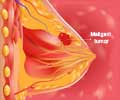A 10% increase in ultra-processed food consumption was associated with a 2% increase in cancer diagnosis and a 6% increase in cancer death.
- Ultra-processed foods typically contain ingredients that consumers would not include when preparing homemade meals
- To extend shelf life, these additions may include chemicals, colorings, sweeteners, and preservatives
- There may be a link between highly processed meals and an increased risk of different cancers
Fizzy Drinks, Read-to-Cook Meals, Breakfast Cereals can Cause Cancer
Researchers at Imperial’s School of Public Health have produced the most thorough assessment of the link between ultra-processed meals and cancer risk to date. Foods that have been severely processed during production, such as fizzy drinks, mass-produced packaged bread, many ready meals, and most breakfast cereals, are examples of ultra-processed foods.Eating Ultra-Processed Foods is Unhealthy
Ultra-processed foods are frequently inexpensive, convenient, and aggressively advertised, typically as healthy alternatives. However, these foods are often higher in salt, fat, sugar, and artificial additives. It is now well established that they are associated with a variety of negative health consequences such as obesity, type 2 diabetes, and cardiovascular disease.Ultra-Processed Foods Increase the Risk of Cancer
The first study of its kind in the UK used UK Biobank records to collect food information from 200,000 middle-aged adult volunteers. Researchers followed the health of participants for ten years, looking at the overall risk of having cancer as well as the particular risk of developing 34 forms of cancer. They also looked at the likelihood of cancer deaths. The study discovered that consuming more ultra-processed foods was linked to an increased chance of acquiring cancer in general, and especially ovarian and brain malignancies. It was also linked to an increased chance of dying from cancer, particularly ovarian and breast cancer.There was a 2% increase in cancer incidence for every 10% rise in ultra-processed food in a person’s diet and a 19% increase for ovarian cancer specifically.
Each 10% increase in ultra-processed food consumption was associated with a 6% increase in cancer mortality overall, as well as a 16% increase in breast cancer and a 30% increase in ovarian cancer.
Reducing the Intake of Ultra-Processed Foods to Improve Health Outcomes
Dr Eszter Vamos, lead senior author for the study, from Imperial College London’s School of Public Health, said, “This study adds to the growing evidence that ultra-processed foods are likely to negatively impact our health including our risk for cancer. Given the high levels of consumption in UK adults and children, this has important implications for future health outcomes. Although our study cannot prove causation, other available evidence shows that reducing ultra-processed foods in our diet could provide important health benefits. Further research is needed to confirm these findings and understand the best public health strategies to reduce the widespread presence and harms of ultra-processed foods in our diet.”Urgent Need to Reform our Food Environment
Dr Kiara Chang, the first author of the study, from Imperial College London’s School of Public Health, said, “The average person in the UK consumes more than half of their daily energy intake from ultra-processed foods. This is exceptionally high and concerning as ultra-processed foods are produced with industrially derived ingredients and often use food additives to adjust colour, flavor, consistency, texture, or extend shelf life. Our bodies may not react the same way to these ultra-processed ingredients and additives as they do to fresh and nutritious minimally processed foods. However, ultra-processed foods are everywhere and highly marketed with cheap prices and attractive packaging to promote consumption. This shows our food environment needs urgent reform to protect the population from ultra-processed foods.”The World Health Organization and the Food and Agriculture Organization of the United Nations have previously suggested limiting ultra-processed foods as part of a healthy, sustainable diet.
Worldwide Initiatives to Reduce Ultra-Processed Food Consumption
Around the world, initiatives are underway to minimize ultra-processed food consumption, with nations such as Brazil, France, and Canada amending their national dietary standards to include suggestions to limit such goods. Brazil has also prohibited the sale of ultra-processed foods in schools. There are presently no such laws in place in the UK to combat ultra-processed foods.Health Reforms to Aid Consumer Choices
Dr Chang added, “We need clear front-of-pack warning labels for ultra-processed foods to aid consumer choices, and our sugar tax should be extended to cover ultra-processed fizzy drinks, fruit-based and milk-based drinks, as well as other ultra-processed products. Lower-income households are particularly vulnerable to these cheap and unhealthy ultra-processed foods. Minimally processed and freshly prepared meals should be subsidised to ensure everyone has access to healthy, nutritious and affordable options.” The researchers emphasize that their study is observational, and so does not demonstrate a causal link between ultra-processed foods and cancer. More research is needed in this area to demonstrate a causal relationship.Source-Medindia
















